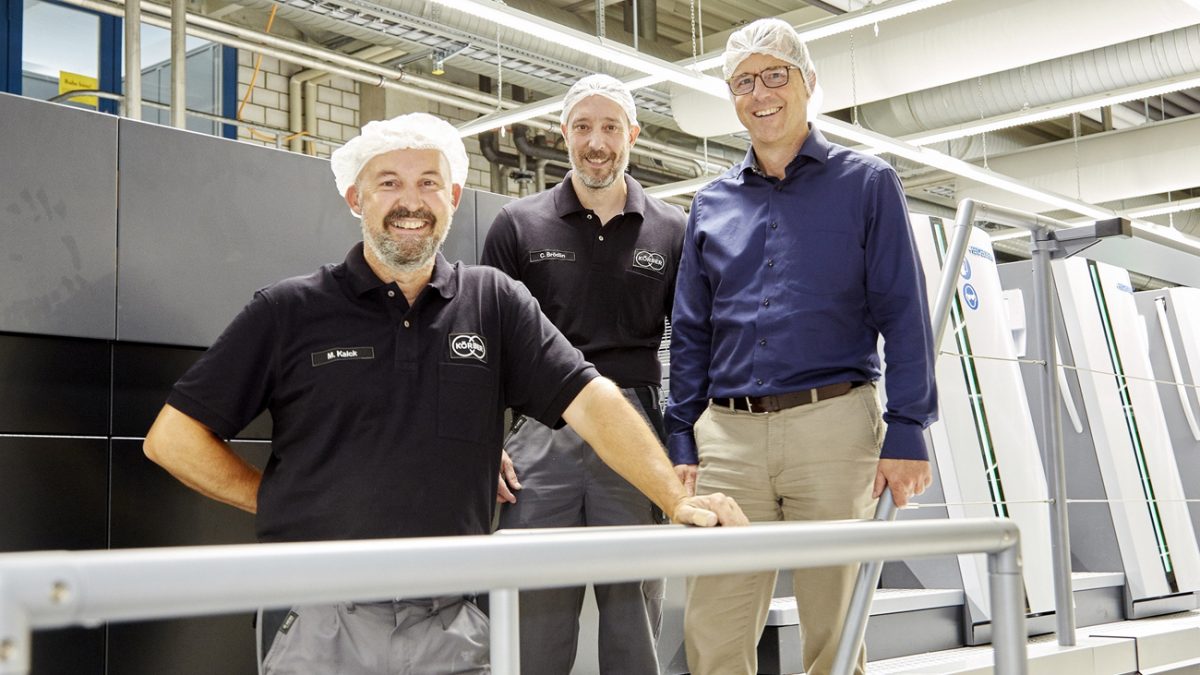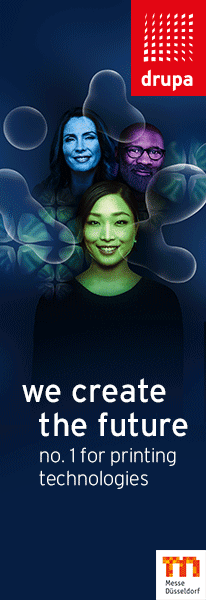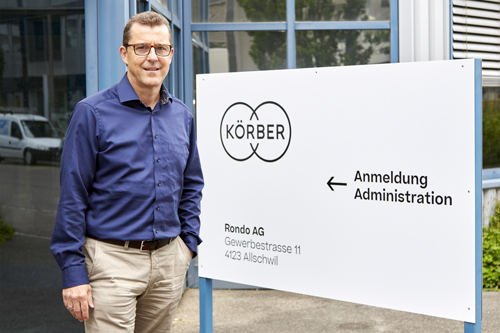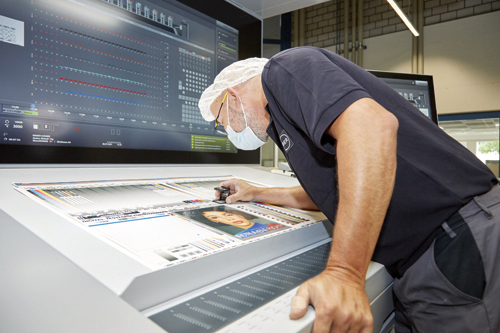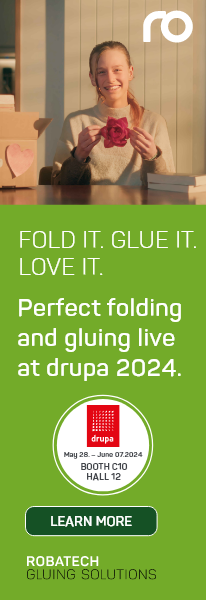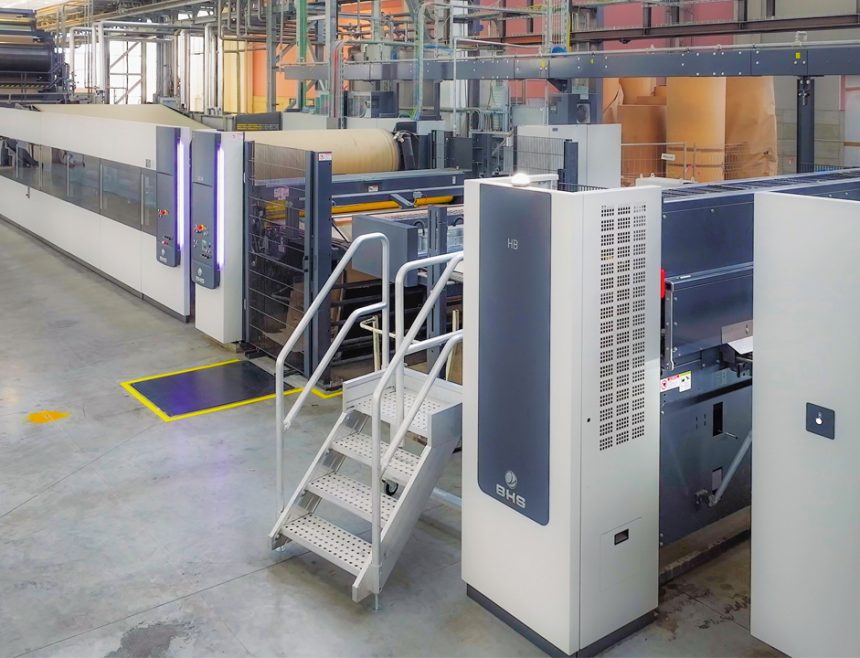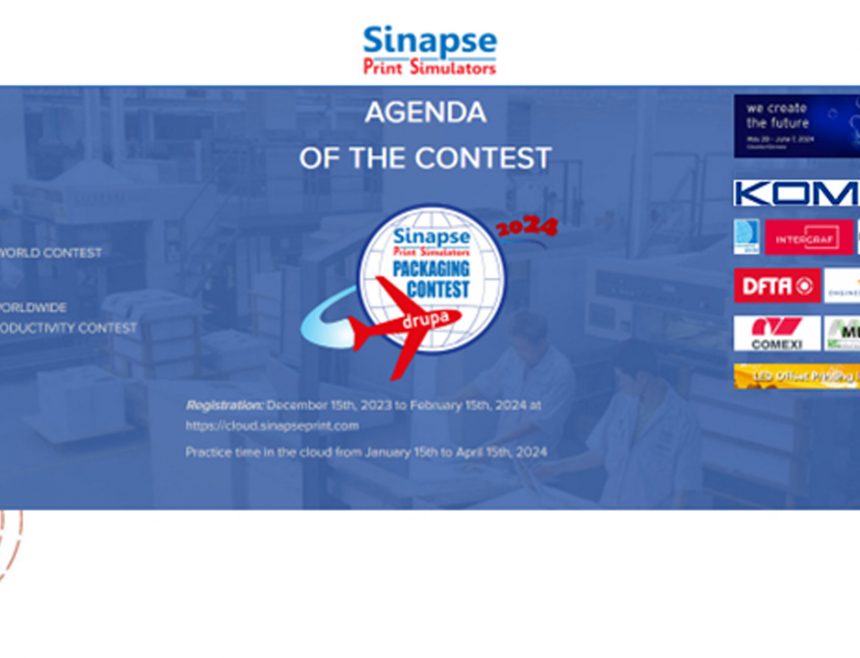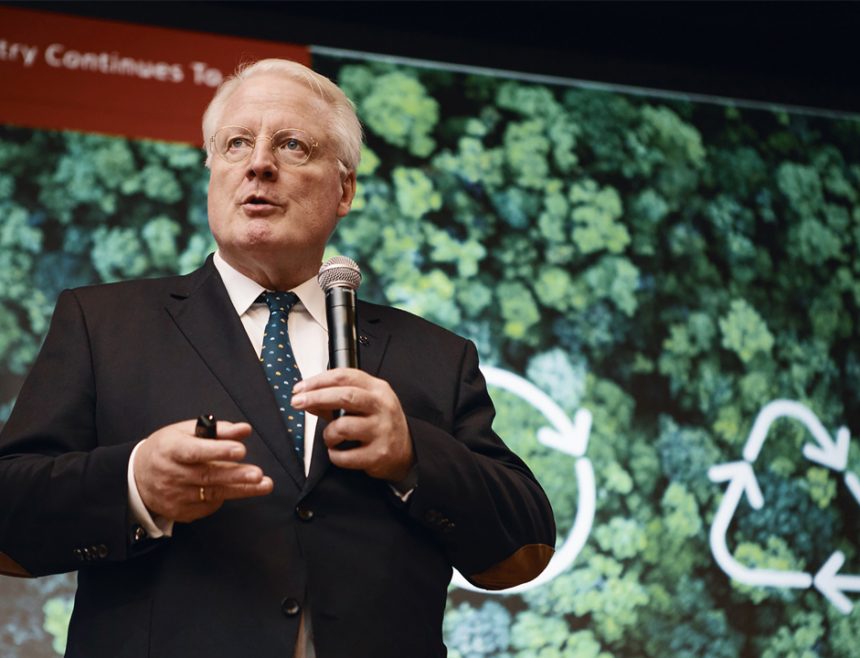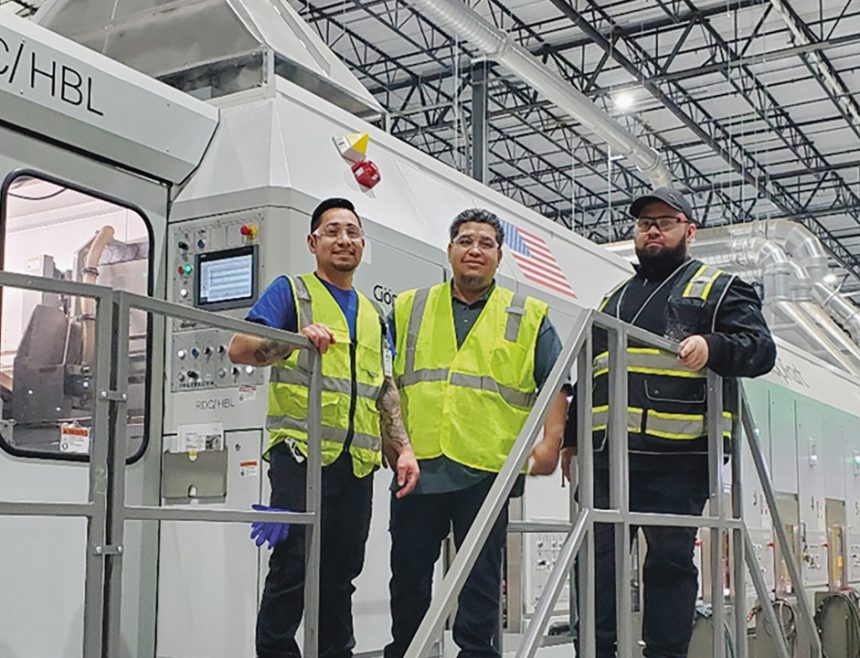Above, left to right: Michel Kalck and Christian Brödlin, both Head of Printing at the Alschwill site, and Joachim Hoeltz.
In a challenging market environment with growing demands, packaging printer Körber Pharma is going from strength to strength. To achieve its ambitious growth targets and successfully consolidate its position, the group is investing in the latest technology of Heidelberg at its sites in Europe and the USA.
Production operations are being strengthened with a Speedmaster XL 106-8+L and a folding carton gluer in Switzerland, an XL 106-10-P+LYYL in the Czech Republic, and an XL 106-10-P+L in Camden in USA. The group of companies already has no fewer than 42 Speedmaster XL 106 printing units in operation.
Faster and more flexible
Joachim Hoeltz, CEO, Packaging Materials (pictured below), explains, “It’s all about being able to deliver whenever required, while also meeting customers’ high requirements relating to quality and product safety. The latest generation of Speedmaster presses is therefore vital to make us even faster, more flexible and more productive.”
For example, multinational pharmaceutical groups in particular have streamlined their value chain and are producing less to stock than they used to. This means orders – some amounting to only a few hundred sheets – are often subject to short delivery times of just two to five days, not to mention sector-specific demands such as protection against counterfeiting, complete traceability and compliance with strict hygiene and process standards.
With at least eight printing units and equipped for mixed operation, the Speedmaster 2020 models combine enhanced agility with consistently high quality. This means Körber is able to meet the special requirements of international customers at short notice and on a uniform basis at all sites. What’s more, the virtually identical press configuration enables the sites to help each other out with global drug launches and peak loads.
Parallel makeready
Another key consideration was minimising makeready work. The average job length in Switzerland is already less than 3,000 sheets, for example, and customers are also requesting ever more Pantone colours. “Features ranging from colour and register control on the fly using Prinect Inpress Control to washing the inking units in parallel with other makeready processes or during production thanks to Hycolor Multidrive are delivering significant time and waste savings,” says Giovanni De Luca, Director of Operations.
Given that frequent job changes mean operators have less and less time to deal with increasingly complex tasks, De Luca considers one of the main advantages to be navigated printing. Intellistart 3 software calculates the quickest way of arriving at the next OK sheet, Intelliguide simulates the time-optimised workflow and Intellirun shows operators which activities are required during production, according to the relevant situation.
“Our staff no longer need to perform routine tasks and are also guided in their decisions. This improves their ability to actually achieve the impressive productivity the press is capable of and obtain a performance level of 18,000 sheets per hour more often,” adds up De Luca. “Straightforward handling also makes it easier to recruit and hold onto qualified operators.”
“Heidelberg understands exactly what we need and translates this into pioneering solutions. The Speedmaster 2020 generation and innovative services such as online monitoring are perfect for helping us ensure we make all the difference when it comes to our customers’ value creation,” concludes Hoeltz.

